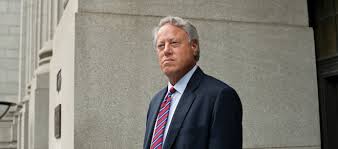By Paul Nicholson
December 30 – Gianni Infantino’s triumphant pre-Christmas claim that FIFA was now close to being an integrity-credible organisation was met with thinly veiled amusement in many quarters – not least the press worldwide who dutifully re-reported the FIFA president’s latest musings. There is of course a far more credible integrity viewpoint. “It has been an awful year of integrity in sports,” says Michael Hershman.
Hershman, an American and one of the founders of Transparency International who is now ICSS Group CEO, said: “We now have the child abuse scandal, it has just been one scandal after another. It seems to get worse…The biggest challenge is that we need to get sports organisations to abide by 21st century rules.”
For FIFA, publicly desperate to show itself as a reformed organisation, but privately and institutionally behaving in a more despotic manner politically less transparent way than ever before, the challenges to its primacy are unlikely to go away and those challenges are likely to be US led.
“The FIFA story is not over,” says Hershman. “The US Department of Justice is not finished with its investigations. Prosecutions will switch to shine more light on FIFA.”
Based in Washington, Hershman is closer to the US political action and well connected to sources in the US Justice department. His opinion may be honed by the often one-eyed US view of the world towards football, but his reach into and knowledge of the political and US justice machinery should open both of the football world’s eyes.
As far as the US Justice department is concerned, anything now appears fair game, whether it is in Africa or Asia and whether it has touched their shores or not.
“The DoJ very much has an appetite for this investigation,” says Hershman. “The Justice department love to see themselves on the front page. And it is not an insignificant amount of money coming in from these settlements. The Justice department has to go to Congress every year to get a budget and has to justify those budgets.”
The recent settlement of $100 million by Argentine sports marketing company Tourneos y Competencias takes the total collected so far to more than $300 million.
Hershman says he is less concerned about who is doing the investigations but that it is more about the how and why.
“It is not important who is driving it but the reasons why. Someone had to do something… It is important that the Swiss come to the table. Some Swiss law changes have been made. But how much longer will their investigation take place before we learn what happened.”
At the same time he feels that not everything is dysfunctional at FIFA. “The ethics team at FIFA is functioning pretty well – doing the job it is intended to do. I don’t see them succumbing to political pressure. Rules are being tightened up.”
That, again, might be a very American viewpoint as the battle for control of world football continues and the North American support for FIFA’s president intensifies with a 2026 World Cup award on the horizon. The North American meddling in the Caribbean, and FIFA and it ethics body’s keeness to get involved also suggests another co-ordinated political agenda is very much in play.
Away from the specifics – and to be fair to Hershman he is not a football person or immersed in the nitty gritty of football politics beyond being a friend of USSF president Sunil Gulati – Hershman says that the claim by sports federations that they aren’t and can’t undertake the role of policeman is a little disingenuous. “They do have important responsibility to use the highest standards,” he says.
It is how they are encouraged to get to that point which is important – for Hershman and the ICSS. “The way forward for FIFA is collective action,” he says, pointing to the Sports Integrity Group Alliance (SIGA). “The days of self regulation are over.” SIGA is a grouping of 75 (so far) bodies that “realise that coming together as peer groups is way to gain greater credibility.” FIFA is not a member of the group.
But with FIFA’s reserves dwindling rapidly and no new sponsor cash on the horizon, FIFA needs to think hard about their sponsor relationships. That is an over-simplification of the situation but there are serious issues that need and presumably are being addressed on the FIFA and sponsor sides of the equation.
Hershman points to double standards from sponsors when it comes to FIFA. “The big sponsors – companies like Coke – have very strict compliance guidelines for suppliers/vendors/partners. But when it comes to FIFA they turn a blind eye. Say FIFA must conform but they don’t do it. They violate own codes. They need to educate FIFA. These companies spend billions of dollars on compliance.”
A US multi-national approach to sports compliance might not be the best way forward – there are basic competing business objectives between voraciously for-profit shareholder organisations and sports governing bodies who live to promote their sport – but there are clearly lessons to be learned.
And they will need to be learned and implemented if we aren’t sitting here again in the closing days of 2017 saying it has been the worst year ever for integrity.
As Hershman so aptly says: “Sports organisations want to go alone and think that by saying they have a new integrity unit they have solved the problem… but they are not showing they are really committed to reform. We are not going to see change until we see more cultural change. We need leadership in proper behaviour.”
Contact the writer of this story at moc.l1745126326labto1745126326ofdlr1745126326owedi1745126326sni@n1745126326osloh1745126326cin.l1745126326uap1745126326
